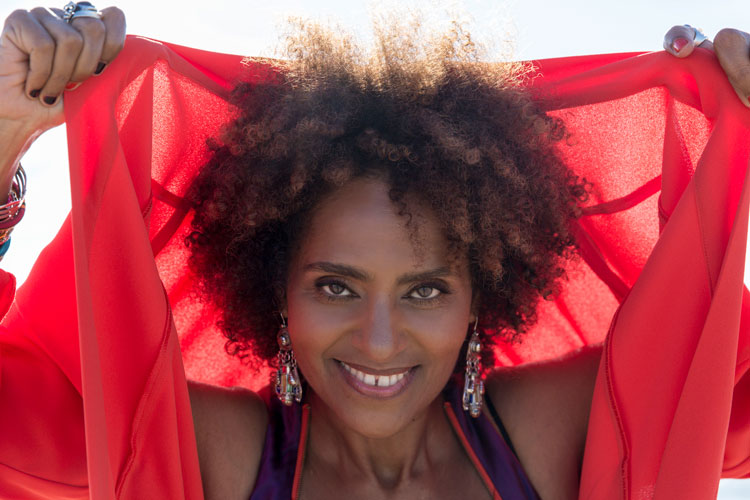Malika Zarra, a jazz vocalist, composer, and band leader from the Maghreb, embarked on her musical journey from her native town of Ouled Teima in southern Morocco. Her upbringing as an immigrant in France shaped her musical pursuits, which flourished on the Parisian stage.
In 2004, she voyaged to New York and unveiled her first album, “On the Ebony Road,” in 2006. This was followed by “Berber Taxi” in 2011. She joined Mycale, an innovative vocal quartet project led by John Zorn, and performed as a featured artist with Arturo O’Farrill’s GRAMMY Award-winning Afro-Latin Jazz Orchestra.
In 2019, after a period of transition in Casablanca, she returned to France. She currently sings with Aruán Ortiz’s Flamenco Criollo and Les Sahariennes, a vocal ensemble that brings together singers from Algeria, Morocco, and Mauritania.
On her third album, RWA (The Essence), Malika Zarra masterfully weaves together the intricate and diverse threads of her musical odyssey. RWA, pronounced “Er-WAH,” derives from the Amazigh (Berber) language and signifies “essence.” As Zarra indicates, “It comes from the custom of a tribe coming together to help an individual by extracting oil from that person’s land. It’s about uniting people to extract the essence.” Released on her self-owned D. Zel imprint on February 3rd, Zarra collaborates with an exceptional ensemble of musicians to honor her birthplace and the people she encountered in her formative years.
Throughout RWA, the sound is immaculate and richly layered, while the rhythms are infectious. Zarra’s vocal delivery is both playful and urgent, as exemplified in “Feen,” which features complex and funky beats crafted by seasoned musicians. Even in concise tracks like “Ouhelt” and “Dreamer,” there is compositional depth and a sense of story development. “La!” demonstrates Zarra’s remarkable range, imagination, and focus, as evidenced by the rhythmic drive and precision, while “Loukt” displays her adroit execution of transitions.
Malika Zarra’s album, RWA, tells the story of her diverse life experiences across three continents, with the help of musicians from ten countries. The album explores the African proverb of gaining intelligence from traveling to multiple villages, and challenges the world’s borders that restrict human movement. RWA incorporates Moroccan chaâbi (shaabi), Berber and Gnawa rhythms into contemporary urban compositions, while maintaining a sophisticated improvisational jazz approach. The lyrics are a collaborative effort, with five songs in the Moroccan Arabic dialect of Darija, and contributions from artists such as novelist Jean-Luc Raharimanana and vocalist Mamani Keïta. The album’s sound is a reflection of Zarra’s musical heritage, influenced by Africa, Europe and North America, and showcases a fully mature musical conception.
“This album,” she says in summary, “is an invitation to celebrate the essence of what we are, what is unique and free inside us, but also to pay tribute to the ties that unite us, beyond any borders or division.”
(headline image: Malika Zarra Photo by Gabriela Cais Burdmann)
Discography:
On the Ebony Road (CD Baby, 2006)
Berber Taxi (Motéma Music, 2011)
RWA (The Essence) (D. Zel, 2023)


